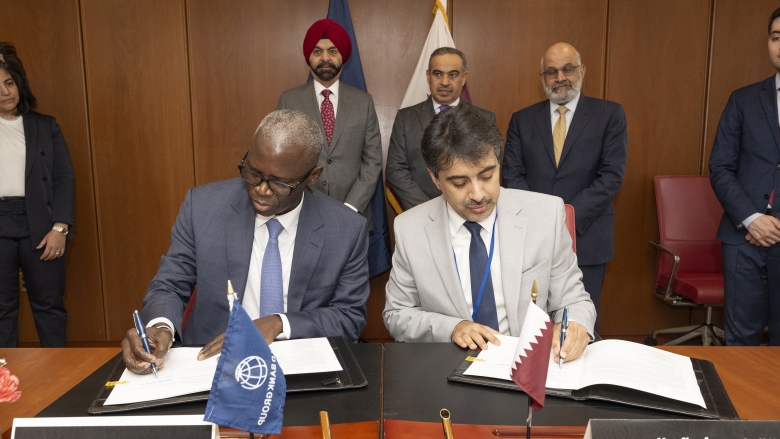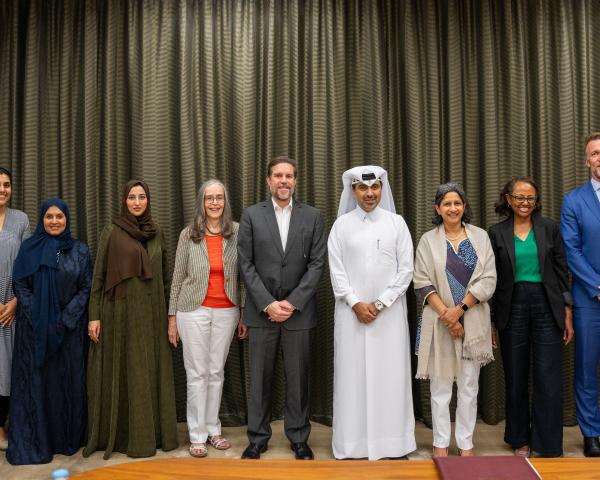In a powerful move to reshape the future of education worldwide, The World Bank and the State of Qatar have announced a strategic partnership aimed at accelerating impactful and sustainable education initiatives. This collaboration is poised to drive transformative change, bringing together expertise, funding, and innovation to tackle some of the most pressing challenges in global education today.
Education remains a fundamental pillar for social and economic development, yet millions of children and young adults worldwide still face barriers to quality learning. The new alliance between The World Bank and Qatar sets out to address these gaps through a shared vision of inclusive, equitable, and forward-looking education systems that prepare learners for the demands of a rapidly evolving world.
This partnership builds on a shared understanding that education is not only a right but also a critical driver of global progress. It acknowledges that investment in education yields significant returns, empowering individuals to improve their livelihoods, strengthen communities, and contribute meaningfully to national economies. The World Bank, with its long-standing commitment to education development, brings decades of experience in funding and guiding projects that have improved access and quality in diverse regions. Qatar, a nation recognized for its ambitious development agenda and willingness to invest strategically in innovative solutions, complements this with resources and a forward-thinking approach that can help scale impactful programs.
Shared Vision for Education Excellence
At the heart of this partnership is a commitment to inclusivity and quality. The World Bank, renowned for its vast experience in funding and implementing education projects in diverse contexts, will combine its resources with Qatar’s strategic investment and innovation-driven approach. Together, they aim to scale up proven education solutions that are adaptable to different regions and sensitive to local needs.

The partnership also emphasizes the importance of leveraging digital technologies to enhance learning outcomes. With the increasing role of technology in education, this alliance will explore innovative digital platforms and tools to widen access, especially for marginalized and underserved populations. Digital learning has the potential to break geographical barriers, offer personalized learning experiences, and support teachers with better tools and resources. By focusing on technology, the collaboration aims to prepare learners with skills necessary for the 21st-century workforce, including digital literacy, critical thinking, and problem-solving.
The initiative recognizes that quality education goes beyond classroom instruction. It incorporates training teachers effectively, updating curricula to be more relevant and inclusive, and building infrastructure that fosters safe and conducive learning environments. This comprehensive approach ensures that education systems can meet the varied needs of all learners, including those in rural or conflict-affected areas.
Driving Sustainable Impact
Both parties recognize that sustainable development in education requires more than just funding—it demands thoughtful, long-term planning and strong governance. The World Bank and Qatar are committed to building capacity within education systems to ensure that improvements are lasting and resilient.
To this end, the partnership will focus on strengthening education policy frameworks, teacher training, curriculum development, and infrastructure improvements. These efforts are expected to contribute not only to better learning environments but also to creating systems that are more responsive to future challenges.
Sustainability is also about local ownership and adaptability. The partnership aims to empower governments and local stakeholders to take the lead in education reforms, supported by technical assistance and resources. By fostering local expertise and encouraging community participation, the initiatives are designed to become self-sustaining, with the ability to evolve over time based on changing educational needs and global trends.
Global Reach, Local Relevance
While the partnership has a global outlook, it is designed to deliver tailored solutions that resonate locally. By combining Qatar’s willingness to invest in pioneering education projects and The World Bank’s deep regional knowledge, the collaboration aims to bridge the global-local divide effectively.
Countries across Asia, Africa, and the Middle East stand to benefit significantly from this initiative. The partnership will prioritize projects that address the unique educational challenges faced by these regions, from improving literacy rates to enhancing STEM education and vocational training.
The initiative also takes into account the diversity of cultural, social, and economic contexts. By working closely with local governments and education providers, the collaboration seeks to respect cultural identities and foster educational models that are relevant and effective within specific communities. This approach helps build trust and encourages the participation of families and students, which is essential for the success and sustainability of education reforms.
Empowering Youth and Communities
Education is not just about academics—it is about empowering individuals and communities. The World Bank and Qatar’s joint efforts will include a strong focus on youth engagement and community involvement. Programs designed to build life skills, foster creativity, and encourage entrepreneurship will form part of the holistic approach to education.
Such empowerment initiatives are critical to ensuring that education drives not only knowledge acquisition but also social cohesion and economic opportunity. The collaboration envisions education as a catalyst for building more inclusive and prosperous societies.
In addition to formal education, the partnership acknowledges the importance of informal and non-traditional learning opportunities. Community-based programs, after-school activities, and vocational training are all part of the strategy to equip young people with practical skills and confidence to navigate an increasingly complex world. This holistic perspective ensures that education supports personal growth and prepares youth to contribute positively to their communities.
A Partnership Rooted in Innovation
Innovation stands as a cornerstone of this new alliance. Qatar’s history of leveraging cutting-edge technologies and research, combined with The World Bank’s extensive development expertise, creates fertile ground for pioneering education solutions. This includes experimenting with AI-driven learning systems, data analytics to monitor progress, and innovative financing models that mobilize private sector investment.
By embracing innovation, the partnership hopes to break traditional barriers and bring scalable, impactful education reforms to life. The use of data and technology will allow education systems to become more adaptive and responsive, tracking student progress in real-time and enabling targeted interventions where needed.
Innovation also extends to financing mechanisms. The partnership explores ways to attract private investment alongside public funding, ensuring that education projects have diverse and sustainable funding sources. This approach helps maximize impact while encouraging accountability and efficiency.
Looking Ahead
The World Bank and Qatar’s partnership marks a decisive step toward a future where quality education is accessible to all. With clear goals, mutual commitment, and a blend of resources and expertise, this collaboration promises to unlock opportunities for millions of learners worldwide.
As the partnership unfolds, stakeholders in education, government, and civil society will watch closely, hopeful that this initiative sets a new standard for global cooperation in education. Success will depend on continuous engagement, transparency, and adaptability, but the foundation laid by this partnership offers strong hope for meaningful progress.
Education is a lifelong journey, and through this partnership, The World Bank and Qatar are sending a powerful message: investing in education is investing in humanity’s shared future. Their collective efforts have the potential not only to transform schools and classrooms but to create societies where every individual has the chance to thrive and contribute to a better world.
Secretary Rubio’s Middle East Tour Marks New Era of Global Cooperation



